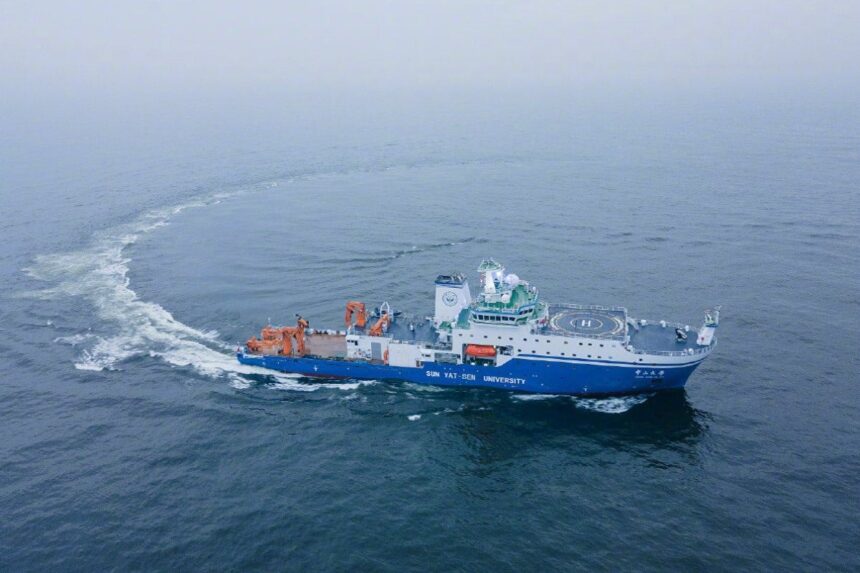China’s growing scientific sea voyages in the Indian Ocean have caused concern in India, which views them as a potential security threat. These activities, such as marine research and underwater drone deployments, are perceived by India as efforts to gather intelligence and extend Chinese influence in the region.
The article explores the potential for heightened tensions between the two countries, especially as they compete for dominance in the strategically significant Indian Ocean.
Read more below.
China’s scientific sea voyages might rile India, but will they lead to clash?
The Yuan Wang 7, a member of China’s space support fleet, was seen heading towards Africa’s eastern coast on Wednesday. The ship is outfitted with advanced sensors and communication equipment.
China has built one of the world’s largest fleets of civilian research vessels, with 64 now in use, according to a recent report by the Centre for Strategic and International Studies, a Washington-based think tank.
China has vastly increased its presence in the Indian Ocean in recent decades, largely through economic activities and scientific research, which India has seen as a threat.
“China’s scientific expedition is following international law, and there is no guarantee by any nation that their research will not be used for military purposes,” he said. “Marine science around the world has always been controversial.”
“If anyone wants to criticise China about its [scientific] research being used for military purposes, there is no way for China to object to that possibility; however, it is the case with all countries’ oceanographic expeditions,” he added.
Zhang noted that behind the “controversy” surrounding China’s research activities was the growing competition “between global maritime powers and littoral countries, and it will not be limited to China and India, or China and the US”.
Observers said the link between the survey activities and the Chinese military – including ties with the People’s Liberation Army – would also deepen suspicions about Beijing expanding its power in the Indian Ocean.
Most of China’s marine research organisations, including the Ministry of Natural Resources, the Chinese Academy of Sciences, and the State Oceanic Administration, have cooperated with the PLA.
The Xiang Yang Hong class of ships, for instance, was originally built for China’s military but was later transferred to its civilian fleet.
Amit Ranjan, a research fellow with the National University of Singapore’s Institute of South Asian Studies, said India was unlikely to openly confront China over the latter’s research activities at sea as long they did not threaten what New Delhi saw as its sphere of influence.
“Once [the survey vessel] crosses into the Indian radar – that is, in the Bay of Bengal – that will concern India. If it’s not, India may not be very vocal,” he said.
He added that Delhi would probably also be unnerved if Chinese research vessels were to travel close to or dock in Sri Lanka or the Maldives – two strategically important island nations that India considers to be within its sphere of influence.
Amid an intensifying power rivalry between China and the US in the Indo-Pacific, China’s expanding presence in the Indian Ocean has drawn scrutiny from Washington and its allies in the region.
“Given the growing strategic importance of the Indo-Pacific region in the eyes of the US and other major Quad members, they have risen against China,” Ranjan said.
By: Zhao Ziwen
Source: South China Morning Post







